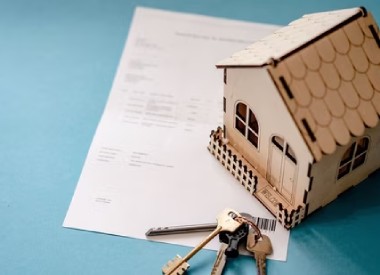Rohan is planning to invest in an apartment in Jakkur, Bangalore. He has made a site visit and has negotiated a good price for it. However as a first time buyer, Rohan is not sure how to guarantee that his investment is a good one. For this purpose, he wants to ensure that all the property documents are in order. Let us help him by providing a checklist of all the necessary documents that he must necessarily scrutinize and do due diligence for his investment.
- Title
The buyer has to ensure the seller has a good and clear title. Property documents for a minimum period of 12 years and a maximum period of 30 years should be examine. Further the mother deed or parent deed should be inspected to know how the property came to be vested upon the seller and it could be through one of the following documents which show transfer of title to the current seller.
- Sale Deed
- Gift Deed
- Will
- Partition Deed
- Government grant
Next to be examined is the nature of the title held which could be- freehold,leasehold or development right.Also any pending or past litigation on the property is also a relevant factor to be looked into.
All original title documents should be available with the seller duly stamped and registered at the concerned Sub Registrar office.Lastly Khata should be in the name of the seller.
- Legal Capacity of the seller
Apart from verifying whether the seller has a good and clear title, the background of the seller should also be ascertained. Apart from verifying basic details like place of residence etc it also be checked that the seller or his predecessors is not a minor or of unsound mind.
- If the property is held by a minor, the property can only be sold after permission from competent authorities. If the owner is of unsound mind, such a property can only be sold through a guardian appointed by a competent court.
- If the seller is a firm, partnership,company,society,trust the incorporation papers of such entities should be examined showing their ability to own and sell property.
- If the property is jointly held by many, then all owners and their antecedents shall be looked into. Also a NOC (No Objection Certificate) shall be obtained from the co-owners.
- If the property is held by a Hindu Undivided Family (HUF) it would be best to ascertain the family tree.
- RERA [Real Estate(Regulation and Development)Act, 2016]
With the coming of RERA in 2016 to regulate the real estate sector each real estate has to be registered with the state regulatory authority before the project is advertised or marketed to the public.Each project would then receive a RERA number. The RERA website contains all important Information relating to the project; details related to it promoters; as well as information relating to its financials.Litigations if any and its past projects.It is also mandatory for the seller to disclose from time to time the progress of the project.
- Conversion of land/MasterPlan
With rapid urbanisation, agricultural land is being converted and being cut into use for non-agricultural purposes.The buyer should ensure that a conversion certificate has been issued by the revenue department.
Further the Masterplan has to be examined to ensure the property is developed according to the zoning plan for residential, commercial, industrial, parks, open spaces etc.
- Approvals
All plans and layouts have to be approved by the concerned developmental authorities which have been designated to do so. Further, permissions for various infrastructural facilities like water, sewage, electricity, fire safety have to be sought from the government department.
- Completion Certificate
This certificate is issued by municipal authorities to denote that the building has been constructed in accordance to the sanctioned plan. This document is considered key to secure a home loan.
- Occupancy certificate
This certifies that the building is ready for occupancy.Possession is valid only after a buyer receives both a completion and occupation certificate.
- Taxes
The seller should have paid all the taxes until the time he held the property.
- Encumbrance Certificate
This certificate is sought to check if there are any charges or liabilities on the property under scrutiny. Such charges or liabilities are created on the property that is held against a home loan as security.
10. Power Of Attorney
If the seller is not physically present and he/she wishes to sell the property on behalf of somebody else, then a valid Power of attorney should be in place.Power of authority gives legal authority to a person, to act as an agent to sell property on his/her behalf.
- Khata Certificate
After registration a Khata certificate is issued to the owner of the property.
With buyers being at the mercy of sellers or agents, it is very pertinent that all documents are clearly scrutinized to ensure no future legal hassles affect your ownership. The best case scenario would be to get the documents examined by a property lawyer to ensure all documents are in order and you inherit a clear and good title thereby making a good investment.


.jpg)

.jpg)

Leave a Reply
Your email address will not be published. Required fields are marked*